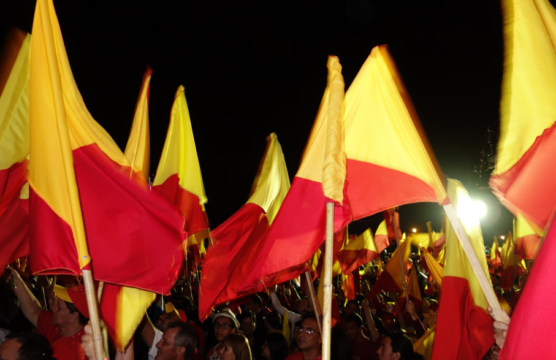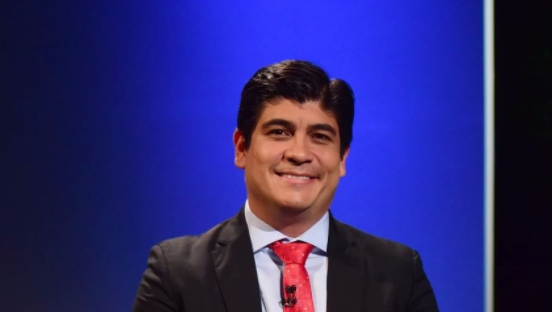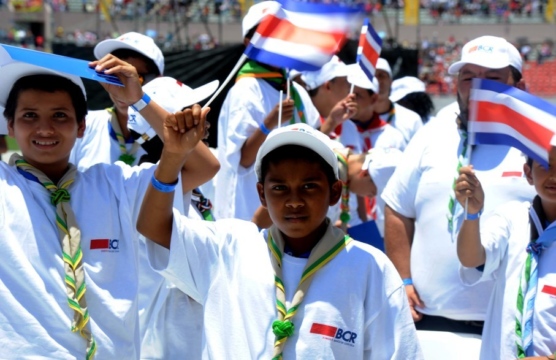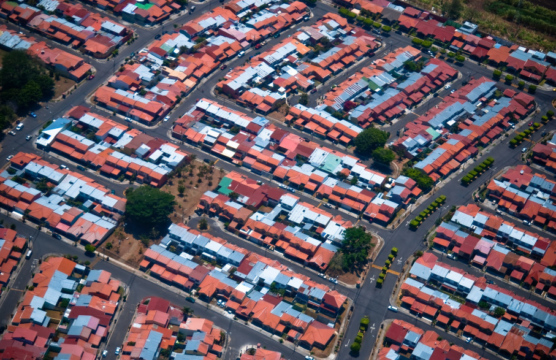
The Implications of Costa Rica’s Elections
The success of the Citizens’ Action Party (PAC) candidate, Luis Guillermo Solis, in Costa Rica’s first round president elections took analysts by surprise.
A Daily Publication of The Dialogue
Ruling party candidate Carlos Alvarado Quesada on Sunday won Costa Rica’s presidential runoff, garnering 61 percent of the vote to defeat evangelical singer and lawmaker Fabricio Alvarado Muñoz. Same-sex marriage was a prominent issue in the campaign, with Alvarado Quesada in support of it and Alvarado Muñoz opposed to it. To what can Alvarado Quesada, who came in behind Alvarado Muñoz in the first round, attribute his victory? What can Costa Ricans expect of his government, and how much will his policies differ from those of current President Luis Guillermo Solís? What will Alvarado Quesada’s government mean for businesses operating in Costa Rica and for the country’s economy?
Rogelio Douglas, president of the Caribbean Sustainable Development Group in Limón, Costa Rica: "Much of Costa Rica’s current peace and joy is based on expectations. President-elect Carlos Alvarado Quesada beat Fabricio Alvarado Muñoz by more than 20 percentage points. It was a very unexpected margin, considering that Alvarado Muñoz had won the first round with a surprising surge from 12th place out of 13 candidates, while the winner’s party is finishing its term with two of the largest corruption cases in the country’s history and an anemic economy. In the end, the theme that carried the winner across the finish line on Sunday night appears to be a stronger understanding and more effective communication of economic issues and possible solutions, not religion or social rights. The challenge for the new government will be effectively addressing the economy. At the macro level, this includes issues such as economic growth, a budget deficit, inflation, interest rates and tax collection. At the micro level, 30 percent of the population continues to live at or below poverty. All they want is long-promised economic inclusion and development in their communities in order to produce jobs, reduce poverty and crime, and create a more democratic distribution of the country’s economic success—in other words, which the liberal democracy has so far failed to produce. The economic glass has been half full for all Costa Ricans for decades. The question is how we get those driving the economy to be much more considerate of those who have been pressured at the bottom. Alvarado Muñoz won only two of the seven provinces in this final round, the two poorest on the coasts. On a national level, the political message is pretty clear. The primary challenge to our democracy, capitalist system and rule of law is the turbulence created by the ever-increasing and unacceptable income gap resulting from the historic exclusion. The next government will need to form a strong national coalition to work at both ends of the economy concurrently."
Christine Wade, associate professor of political science and international studies at Washington College in Chestertown, MD: "Costa Rica’s presidential runoff featured a stark contrast between author and former Labor Minister Carlos Alvarado Quesada and Fabricio Alvarado Muñoz, an evangelical pastor whose anti same-sex marriage stance became the focus of the late campaign. Polls had the two candidates running neck-and-neck or giving a slight edge to Alvarado Muñoz, but higher than expected voter turnout appears to have tilted the balance to Alvarado Quesada. In addition to highlighting growing tensions between conservatism and progressivism in Central America’s ‘exceptional’ democracy, voting patterns also appeared to underscore the extent to which those values were represented by the urban-rural divide. While the IACHR decision on same-sex marriage dominated the campaign in recent months, the new administration will face some significant economic challenges. High unemployment, a large public-sector deficit, rising inequality,and rising crime all await the president-elect. Alvarado Quesada will have to make a concerted effort to work with other parties in a divided legislature to get key legislation, such as tax reform, passed if he’s to succeed where others have failed. Given his economic team, which includes Vice President-elect Epsy Campbell Barr and President Solís, it’s unlikely his policies will diverge significantly from the current administration."
Bruce M. Wilson, professor of political science at the University of Central Florida: "Carlos Alvarado Quesada’s margin of victory in Sunday’s runoff election (61 percent to 39 percent), a blowout, was not predicted by any national pre-election polls. Instead, polls consistently showed him trailing or in a dead heat with right-wing evangelical singer and deputy Fabricio Alvarado Muñoz. Turnout was unexpectedly high, surpassing the first-round totals, despite the election being held during a major Costa Rican vacation period. In the two months between the two rounds, both candidates courted supporters of the other 11 parties that failed to make the second round and made policy concessions and promises of collaboration in a future government. Alvarado Muñoz, though, made a series of unforced errors including canceling his participation in some national debates, gagging his party’s 14 newly elected deputies, preventing the public from getting to know them, filing a legally required donors list late, releasing the party’s program just three days before the election, and focusing almost exclusively on the same-sex marriage issue that he used successfully to animate his supporters in the first round. Furthermore, his spiritual mentor’s attacks on Catholic icons including the crucifix and the much loved, ‘La Negrita,’ the patron saint of Costa Rica, helped undermine support from Catholics. President-elect Carlos Alvarado’s capacity to govern depends on his ability to negotiate with deputies from six other parties in the Legislative Assembly, where his own party controls just 10 of the 57 seats. Compounding his difficulty is that the Costa Rican president’s institutional powers are among the weakest in LatinAmerica."
Mitchell A. Seligson, Centennial Professor of Political Science at Vanderbilt University: "As Mark Twain might have said, reports of the demise of Costa Rica’s democracy and civility were greatly exaggerated. The trouncing that the outsider, evangelical populist candidate Fabricio Alvarado, took in the runoff—losing to Carlos Alvarado, a candidate of an unpopular incumbent party— demonstrates how far off the mark those widely expressed fears actually were. In a previous issue of this publication, I predicted Fabricio Alvarado’s defeat, saying that when Costa Ricans placed the explosive issue of the Inter-American Court of Human Rights’ ruling on legalizing same sex marriage in perspective with the other challenges the country faces, such as crime, corruption, and the budget deficit, it would be unlikely that Fabricio Alvarado would be elected president, and more likely that Carlos Alvarado Quesada, who was only 3 percent behind Fabricio Alvarado, would be elected. While the same-sex marriage question was a highly divisive issue in this election, Vanderbilt University’s LAPOP AmericasBarometer surveys have shown a steady increase in tolerance toward gays and same-sex marriage in Costa Rica over the past decade. The real message of this issue was not that Costa Rica is following Guatemala in losing its Catholic majority and becoming an evangelical country, but rather that the great geographic division in the vote revealed deep regional splits. In two of Costa Rica’s seven provinces, the evangelical candidate came out ahead in the run-off. The majority of voters supported him in Puntarenas, 55 percent, and Limón, 63 percent—regions far poorer and less developed than the rest of the country. The ruling Citizens’ Action Party is going to need to expend extra effort in these provinces if it expects to win their support in future elections."
The Latin America Advisor features Q&A from leaders in politics, economics, and finance every business day. It is available to members of the Dialogue's Corporate Program and others by subscription.
The success of the Citizens’ Action Party (PAC) candidate, Luis Guillermo Solis, in Costa Rica’s first round president elections took analysts by surprise.
What types of policy changes can be expected from the administration of Luis Guillermo Solís?
Attracting foreign investment to grow the economy is a top priority for Costa Rica’s new government, President Luis Guillermo Solís said at the Dialogue.
 Ruling party candidate Carlos Alvarado Quesada was elected Costa Rica’s president in Sunday’s
runoff election. He is to take office in May.
Ruling party candidate Carlos Alvarado Quesada was elected Costa Rica’s president in Sunday’s
runoff election. He is to take office in May.

